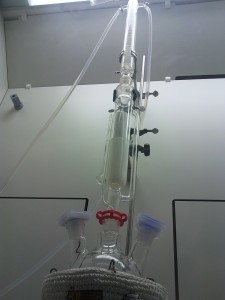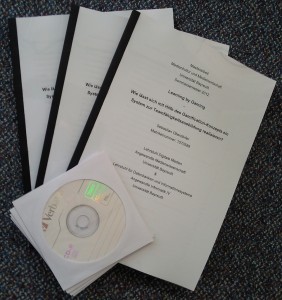Interdisciplinary Science
During my ongoing literature review I often discover interesting facts about things I’ve never thought about. Sometimes I can connect these facts with my own observations: The result is mostly a completely new idea why things are as they are. Maybe these ideas are new to you, too. Therefore I’ll share my new science based knowledge with you!
This week: This time, I think about the importance of interdisciplinary research and the resulting need for interdisciplinary scientists who already combine several research areas at once.
Achieving interdisciplinarity is one of the most important research goals these days. By combining efforts to tackle complex problems, all involved disciplines can benefit from each other. Additionally, research questions are analyzed using different approaches which results in a more thorough evaluation and a higher novelty.
For instance, combining computer sciences with media sciences and pedagogy to research game-based training results in a very in-depth analysis of the topic. Also, the individual disciplines learn from each other about the structure of computer games, the positive and negative effects of using certain game mechanics as well as the overall effects of playing computer games.
Results of those interdisciplinary projects are often highly appreciated by the community as they not only yield innovative solutions but also expand the knowledge of all involved research fields. The interdisciplinary work, however, is very challenging. Each discipline has its own approaches and own language. As a result of this, before being able to work together, the involved parties need to find a common language and also be open minded for the concerns and suggestions being discussed by their partners. Only when overcoming these obstacles, scientists belonging to different disciplines can effectively work together.
However, despite seeing the benefits of interdisciplinarity, the importance of interdisciplinary scientists often is overlooked. Each discipline aims at the training of mono-disciplinary experts who then have a hard time to collaboratively work together with other scientists belonging to other research fields. I believe that, similar to corporates that combine different areas of expertise under one roof, research groups also need to invest more in scientists who can create bridges between various disciplines. Instead of being highly trained experts, these scientists have an interdisciplinary education and hence can easily jump between various disciplines.
The importance of such an approach becomes more and more obvious these days as interdisciplinary scientific conferences are very successful. Here, experts appreciate the novel and promising results and even give awards to projects that were created by an interdisciplinary collaboration.


